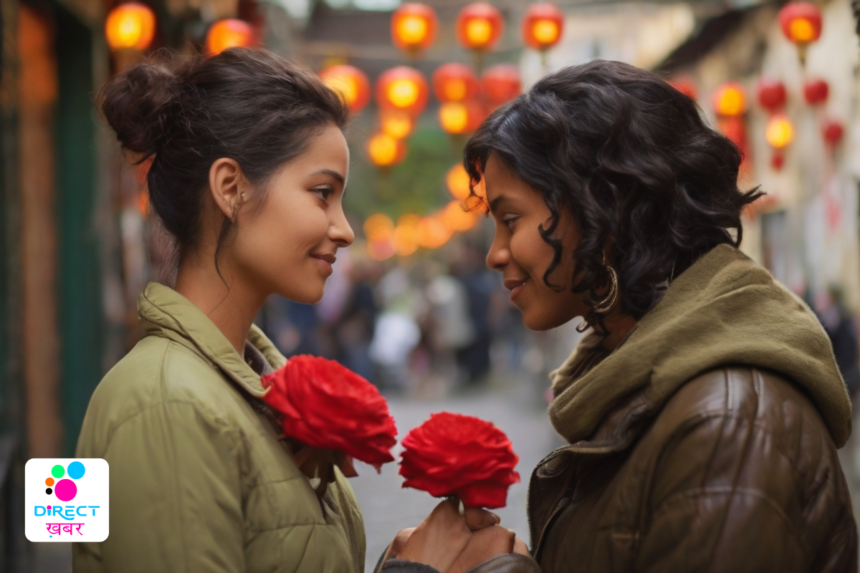Breaking Down Barriers: Overcoming Cultural Differences in Love
Love knows no boundaries, yet cultural differences can sometimes pose significant challenges in relationships. In today’s globalized world, individuals from diverse cultural backgrounds frequently form romantic connections, leading to a rich tapestry of intercultural relationships. However, these love relationships often encounter unique obstacles stemming from contrasting beliefs, values, and traditions. This essay explores the complexities of navigating cultural diversity in love and offers insights into overcoming barriers for a harmonious and fulfilling relationship.

Understanding Cultural Differences:
Cultural diversity encompasses a wide array of factors, including language, religion, customs, and social norms. These differences profoundly influence individuals’ worldviews, communication styles, and perceptions of love and relationships. Recognizing and respecting these variations is essential for fostering mutual understanding and appreciation in intercultural relationships.
Communication Challenges:
Effective communication lies at the heart of any successful relationship. However, language barriers and differing communication styles can complicate interactions between partners from different cultural backgrounds. Misinterpretations and misunderstandings may arise due to nuances in language usage, nonverbal cues, and indirect communication patterns. Building strong communication skills and embracing openness and patience are crucial for bridging these gaps.
Navigating Family Dynamics:
Family plays a central role in many cultures, influencing individuals’ values, expectations, and decisions regarding relationships. Intercultural couples may encounter tensions and conflicts when navigating divergent family dynamics, such as differing attitudes towards marriage, gender roles, and familial obligations. Establishing clear boundaries, fostering dialogue, and demonstrating respect for each other’s family traditions can help mitigate these challenges.
Negotiating Traditions and Rituals:
Cultural traditions and rituals often hold deep significance for individuals, serving as expressions of identity, heritage, and community belonging. Intercultural couples may face dilemmas when reconciling conflicting traditions or deciding which customs to prioritize in their relationship. Finding a balance between honoring each other’s cultural heritage and forging new traditions together can foster a sense of unity and inclusivity.
Managing Religiosity:
Religion can profoundly shape individuals’ values, moral beliefs, and lifestyle choices, influencing various aspects of their romantic relationships. Interfaith couples may encounter complexities related to religious practices, holidays, and ceremonies, which can evoke tensions or raise questions about compatibility. Embracing mutual respect, tolerance, and open dialogue about religious beliefs and practices is essential for navigating these sensitive issues.
Resolving Conflicts:
Conflicts are inevitable in any relationship, but cultural differences can exacerbate tensions and complicate resolution processes. Differing conflict resolution styles, attitudes towards confrontation, and perceptions of power dynamics may influence how intercultural couples approach and resolve disagreements. Cultivating empathy, active listening, and a willingness to compromise can facilitate constructive conflict resolution and strengthen the bond between partners.

Celebrating Diversity:
Rather than viewing cultural differences as obstacles, intercultural couples can embrace them as opportunities for growth, learning, and enrichment. Celebrating each other’s unique cultural heritage, exploring new traditions together, and fostering a spirit of curiosity and openness can deepen emotional intimacy and create a more resilient relationship. Embracing diversity not only strengthens the bond between partners but also enriches their individual experiences and perspectives.
Intercultural relationships offer a beautiful tapestry of diversity and shared experiences, but they also require patience, understanding, and mutual respect to overcome cultural barriers. By embracing open communication, empathy, and a willingness to learn from each other’s cultural backgrounds, couples can navigate the complexities of cultural diversity in love and build stronger, more resilient relationships that transcend borders and boundaries. Ultimately, love prevails when it transcends differences and embraces the richness of human diversity.
Patience, perhaps one of the most vital threads in this tapestry, acts as a guiding light through moments of confusion and misunderstanding. Understanding that cultural disparities may lead to divergent perspectives and behaviors fosters an environment of tolerance and acceptance. It’s in these moments of patience that partners can delve deeper into each other’s backgrounds, unraveling the intricacies of their cultural tapestries and finding common threads that bind them together.







